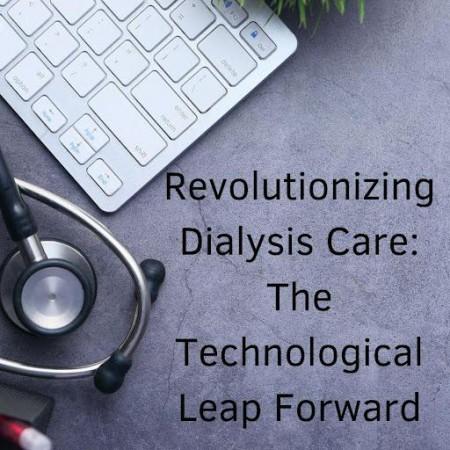
With chronic kidney disease (CKD) affecting millions globally, innovation in dialysis technology is crucial. Ramreddy Meka, a prominent researcher, discusses the transformative advancements reshaping dialysis healthcare, aiming to improve outcomes and quality of life for patients.
The Growing Burden of CKD and ESRD
Chronic kidney disease has become a global health crisis, impacting over 850 million people, with many progressing to end-stage renal disease (ESRD). As risk factors like diabetes and hypertension rise, dialysis becomes essential for millions, posing significant challenges to healthcare systems. The financial burden is immense, highlighting the urgent need for technological intervention.
Advanced Dialysis Equipment: Efficiency and Comfort
Recent breakthroughs in dialysis equipment have prioritized patient comfort and treatment efficiency. High-efficiency dialysis machines now offer better solute clearance and precise fluid management. Hemodiafiltration technology has emerged as a game-changer, lowering mortality rates compared to traditional methods. Moreover, the advent of portable dialysis units has given patients more flexibility, allowing them to manage treatment from the comfort of their homes or while traveling. Looking ahead, wearable artificial kidneys are on the horizon, aiming to deliver continuous dialysis, closer to how natural kidneys function.
Data-Driven Patient Management
Integrating data management systems has revolutionized patient monitoring and treatment. Electronic Health Records (EHRs) dedicated to dialysis have streamlined data collection and improved communication among healthcare teams. Remote monitoring tools enable real-time patient assessment, significantly enhancing safety and responsiveness. Furthermore, artificial intelligence (AI) and machine learning are making strides in predictive analytics, such as forecasting adverse events like intradialytic hypotension, which facilitates timely intervention and personalized care plans.
Telehealth: Redefining Patient Engagement
Telehealth's role in dialysis care expanded dramatically during the COVID-19 pandemic, and it remains vital today. Virtual consultations ensure patients have consistent access to their healthcare providers, reducing exposure risks and enhancing convenience. Remote monitoring of patients vital signs and fluid levels enables healthcare professionals to detect complications early and respond proactively. This technological shift empowers patients, fostering better engagement and adherence to treatment plans.
Empowering Patients Through Engagement Technologies
Patient engagement technologies, including mobile health applications and online communities, are making a notable impact. Apps designed for tracking medications, managing diet, and reporting symptoms allow patients to take control of their health. These tools can boost adherence and overall outcomes. Online support networks offer emotional backing and the chance to share experiences, complementing professional medical care and helping patients feel less isolated in their journey.
The Potential of Novel Dialysis Modalities
Emerging dialysis technologies are poised to revolutionize treatment. Bioartificial kidneys, which combine living cells with artificial components, promise more effective renal replacement by better mimicking natural kidney function. Implantable artificial kidneys, although still in the research phase, could offer continuous therapy without external machines, dramatically improving patients' quality of life. Nanotechnology and sorbent-based systems are also being explored to enhance dialysis efficiency and reduce treatment-related complications.
Overcoming Barriers to Adoption
Despite the promise of these innovations, significant challenges persist. The high cost of advanced equipment, infrastructure upgrades, and ongoing maintenance strain healthcare budgets, especially in low-resource settings. Data security and privacy concerns demand robust protection measures, while resistance to change and training needs hinder widespread adoption.
The Future of Dialysis Care
The future of dialysis care depends on adopting advanced technology while overcoming key challenges. Collaboration among researchers, healthcare providers, and patients is vital to make innovations patient-centered and accessible. Ongoing investment, clinical validation, and ethical considerations are necessary to achieve efficient, personalized, and effective dialysis treatment advancements.
In conclusion, Ramreddy Meka's insights shed light on a future where technology not only sustains but significantly enhances the quality of life for dialysis patients, transforming renal care into a more holistic and patient-focused experience.

















